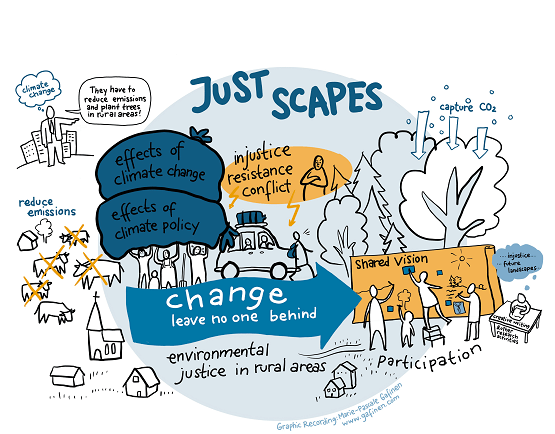A brief introduction
By "just transformations", we mean widescale and deep-rooted social-ecological change – change that combines social justice goals with environmental goals, like decarbonisation and protecting biodiversity. If we’re to meet the UN’s 2030 agenda to ‘leave no-one behind’, then we’ll need to challenge inequalities across categories like race, gender, wealth, belief system and generations.
In Just Scapes, we’re looking not just at how the effects of climate change are distributed, but also at the effects of policy responses to climate change.
Some Europeans view climate policies as socially regressive, and disproportionately impacting on low-income and rural households. (The Gilets Jaunes movement in France, or recent protests about deer management in Scotland, are good examples.)
We’re seeing more and more evidence of these justice barriers across Europe – and it's precisely these tensions that we are investigating in Just Scapes.
Just Scapes uses interdisciplinary and transdisciplinary methods (geography, psychology, political science, futures studies and creative writing).
Have a look here for more detail on the different research strands and how they interrelate.
We have been focusing on three case studies: in the Czech Republic, France and the UK.
Visit our case-studies page for more information on each site.
From 2020–2024. We're funded by JPI Climate – SOLSTICE programme, with partners across four institutions:
• ESPOL – European School of Political and Social Sciences
• Global Change Research Institute of the Czech Academy of Sciences – Czech Globe
• INRAE – French National Research Institute for Agriculture, Food and the Environment
• UEA – University of East Anglia

